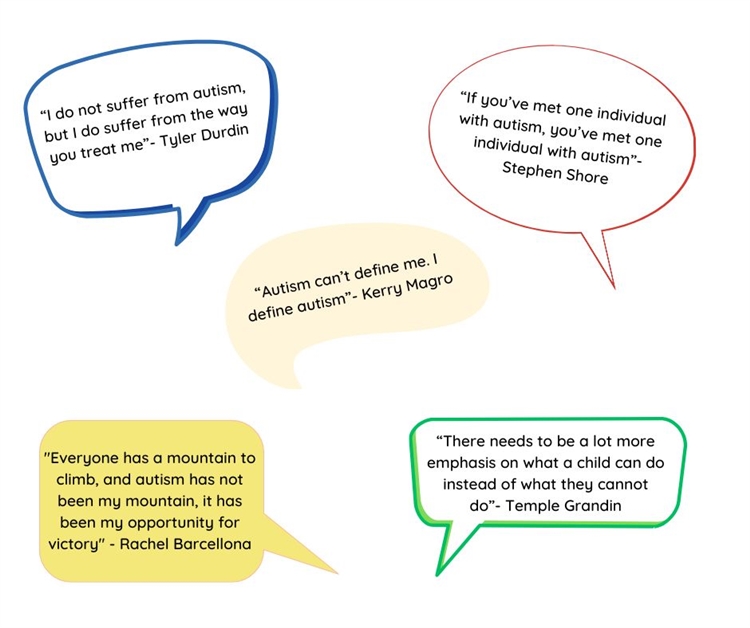July 27, 2023
Redefining Autism Awareness Month
April marks Autism Awareness Month, which also encompasses World Autism Day (April 2). We find ourselves promoting the month by sharing posts on social media, wearing blue, and repeating the phrase, “Autism Awareness” - but what does awareness really mean? To simply say that one is aware of autism sounds nonsensical. Of course, we know that autism exists - but as professionals who work with the population, families who love someone with autism, and individuals who experience it - we don’t solely seek awareness, we advocate for total acceptance and advocacy.
As a psychologist who specializes in autism evaluations, a common question that gets asked by parents is, “is my child high functioning or low functioning?” This was common terminology used by professionals in the mental health and behavioral science fields years ago, and it is still, unfortunately, unofficially relied on to communicate level of deficit. However, the world of autism has changed significantly, and there is an increased understanding that it occurs along a spectrum. In a recent USA TODAY article by Clare Mulroy, Zoe Gross from the Autistic Self Advocacy Network explains her own experience as an individual with autism. She compares autism to an ice cream sundae bar, “Rather than there being set characteristics, the traits of autism can be mixed and matched from person to person.” If we used the terms “high functioning” and “low functioning” for individuals who are considered neurotypical (without autism), one would understand how loaded and impossible the question is. For example, if I asked you, “are you really good at certain things?” You would likely reply, “yes.” I could also ask, “are you really bad at certain things?” And your response would also likely be, “yes.” Neither one of those questions insinuates that you are a high functioning or low functioning individual - we all have a unique set of strengths and weaknesses, and this applies equally for individuals with autism.
The word “autism” can be daunting for parents who are receiving a first-time diagnosis for their child, and it can be difficult to comprehend. We are here to help you along the way, and there are some things to remind yourself of during this journey.
1.The truth is, regardless of what “information” exists on the internet, there is no known cause of autism. Despite the theories that may float around on what caused your child’s autism, your attention should be on the now - how can we all help?
2.No child is the same! If you’ve seen one child with autism, you’ve seen only that...one child with autism. Just like children who do not have autism, all children with autism are unique in their own way.
3.Early diagnosis and intervention are essential. Although many children are diagnosed later in life, we can often diagnose autism reliably by the age of 2, which allows for early intervention supports. Early intervention is associated with better outcomes such as fewer behavioral issues, development of increased skillsets, and more adaptive functioning in independence.
4.There are parent support groups to help you along the way. It’s just as important to take care of yourself as it is to take care of your child. There are countless other parents/families who have felt/are feeling similar emotions regarding diagnosis, and that level of support can be unmatched.
5.Autism does not mean there is a lack of intelligence. Children with autism may face difficulty academically, but this does not inherently indicate cognitive deficit.
6.Working as a team is important! You may work with a lot of professionals when it comes to your child including special education teachers, behavior therapists, psychologists, school administration teams, speech therapists, psychiatrists, etc. The truth is, YOU are the expert on your child! You comprise the most important part of the team. Ask questions, make recommendations, and seek additional support if you are unsure of something regarding your child’s treatment.
There is no one size fits all approach to autism, just like no child or individual with autism is the same. Our number one piece of advice to anyone looking to change the Awareness in “Autism Awareness” to Acceptance and Advocacy is: Get to Know Them! Understand their likes and dislikes, their strengths and weaknesses, and truly understand them for their individual self. There is no known cure for autism, but we can absolutely change our mindset, outlook, actions, advocacy skills, and knowledge. In honor of autism awareness month, here are some quotes that speak to the individuality and exceptionality we see in all individuals with autism.
